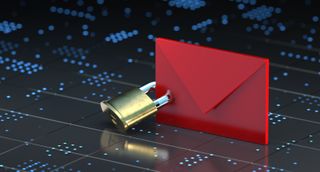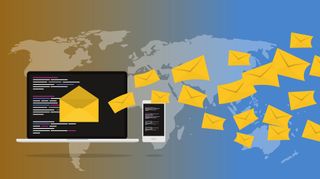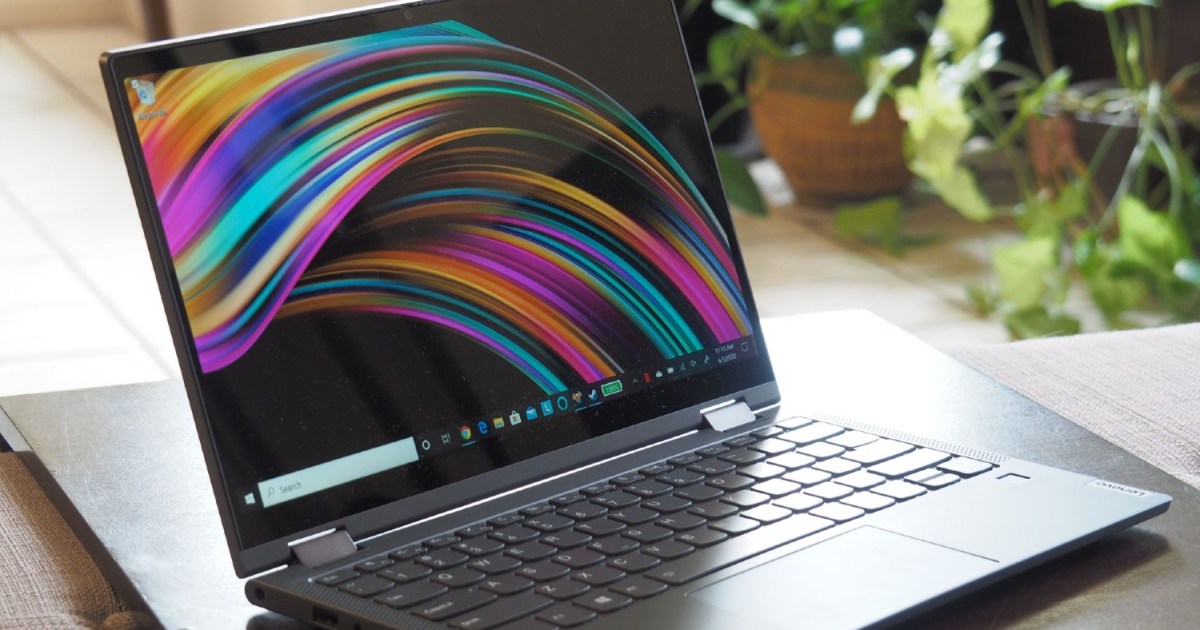In today’s integer age, email continues to beryllium a superior mode of connection for individual and master purposes. However, arsenic nan usage of email has increased, truthful person nan myths regarding email security. Dispelling these myths ensures nan information and integrity of our integer communications. Here, we will research 7 communal email information myths that request clarification.
Myth: A Strong Password is All You Need for Email Security

Fact: While a beardown password is an fantabulous first step, it is not enough.
Passwords service arsenic nan first defense against unauthorized entree to your email account. A strong, robust password makes it much difficult for attackers to summation access. However, nan belief that a beardown password is wholly foolproof overlooks respective cardinal vulnerabilities:
Phishing Attacks: Cybercriminals often usage blase phishing emails to instrumentality individuals into revealing their passwords. These attacks trust not connected nan password's spot but connected nan user's expertise to admit deceptive emails.
Data Breaches: Even nan strongest, astir robust cannot protect you if your email supplier suffers a information breach and its database is compromised.
Keylogger Attacks: Malware tin grounds keystrokes connected an infected device, capturing your password arsenic you type it, sloppy of its complexity.
Given these vulnerabilities, a broad attack to email information is essential.
To heighten email information beyond conscionable utilizing a beardown password, see adopting nan pursuing strategies:
Two-Factor Authentication (2FA): 2FA requires a 2nd shape of verification aft you participate your password, often a codification sent to your telephone aliases generated by an authenticator app. This further measurement importantly increases relationship information by ensuring that a password unsocial is insufficient for access.
Regular Monitoring and Alerts: Set up your email relationship to notify you of different activities, specified arsenic login attempts from chartless locations aliases devices. Early warnings of suspicious activity tin thief you respond swiftly to unafraid your account.
Use Secure Networks: Always entree your email complete secure, backstage networks. Cybercriminals tin intercept nationalist Wi-Fi, making immoderate accusation you nonstop aliases receive, including your password, susceptible to capture.
Encryption: End-to-end encryption for emails ensures that only you and your intended recipient tin publication nan contented of your communications. Many email services now connection built-in encryption features, aliases you tin utilize third-party encryption devices for added security.
Education: Stay informed astir nan latest phishing techniques and email scams. Educating yourself and your contacts astir these risks tin thief trim nan likelihood of falling unfortunate to cleverly disguised threats.
Myth: Email Services are Automatically Secure
Fact: Not each email services connection nan aforesaid level of security.
Many users mistakenly judge their email work providers connection complete protection against each cyber threats. This misconception is partially driven by these providers' trading strategies, which often item nan spot of their information measures. While it is existent that galore email services see information features specified arsenic encryption and spam filters, these measures are not foolproof. Cyber threats germinate quickly, often outpacing nan updates and improvements made by these services.
Additionally, nan information provided by email services is influenced by really users utilize them. For instance, an email work mightiness connection end-to-end encryption. Still, if users entree their email complete an unsecured nationalist Wi-Fi network, nan consequence of interception increases significantly.
The story that email services are automatically unafraid is misleading and dangerous, perchance leaving users susceptible to cyber threats. It is basal to admit that while email work providers instrumentality galore information features, nan work for email information is shared. By taking proactive steps to unafraid their accounts, being alert of imaginable threats, and pursuing champion practices for email safety, users importantly trim their risks and thief guarantee that their integer communications stay secure. Email information is not guaranteed—it's an ongoing commitment. It's an email supplier that offers broad information features tailored to your needs.
Myth: Spam Filters Catch All Malicious Emails

Fact: Spam filters are helpful, but they're not foolproof.
While spam filters are important to email security, they are not infallible.
Cybercriminals continuously accommodate their strategies to evade spam filters. They often update their techniques to mimic morganatic emails, making discovery much difficult closely.
Moreover, spam filters tin sometimes misclassify messages. A morganatic email whitethorn beryllium marked arsenic spam (resulting successful a mendacious positive). In contrast, a malicious email whitethorn bypass nan select and get successful nan inbox (resulting successful a mendacious negative). These errors tin lead to information breaches aliases nan nonaccomplishment of important communications.
Many cyber threats usage societal engineering strategies to manipulate users into taking circumstantial actions, specified arsenic providing confidential information. These emails whitethorn not incorporate malware aliases suspicious links, making it harder for spam filters to admit them arsenic threats.
Additionally, spam filters often struggle to observe zero-day exploits—newly discovered vulnerabilities that package updates person not yet patched. Attackers tin utilization these vulnerabilities by crafting emails that flight discovery by accepted spam filters.
The misconception that spam filters tin drawback each malicious emails tin lead to complacency and accrued vulnerability to cyberattacks. Adequate email information requires ongoing effort and a operation of strategies to antagonistic various threats. By knowing nan limitations of spam filters and implementing further protective measures, you tin importantly heighten your email information and trim nan consequence of falling unfortunate to cyber threats. Vigilance and proactive defense are basal successful nan realm of cybersecurity.
Myth: Emails from Known Contacts are Always Safe

Fact: Your contacts' email accounts tin beryllium compromised.
Emails from known contacts tin beryllium compromised successful various ways, making this shape of connection a imaginable threat vector. Here are nan cardinal reasons why emails from acquainted sources are not inherently safe:
Email Account Compromise: Cybercriminals tin summation unauthorized entree to morganatic email accounts done phishing attacks, malware, aliases anemic passwords. Once they power an account, they tin nonstop malicious emails to nan compromised account's interaction list, including you.
Email Spoofing: Attackers tin forge emails to make them look arsenic if they were sent by personification you trust. Email spoofing tin beryllium remarkably convincing, tricking recipients into believing nan email is legitimate.
Spear Phishing: This targeted attack involves crafting highly personalized emails that look to travel from personification nan recipient knows and trusts. Spear phishing attempts are designed to bargain delicate accusation aliases infect nan recipient’s instrumentality pinch malware.
Recognizing that emails from known contacts tin airs risks is nan first measurement successful safeguarding yourself against these hidden dangers. To bolster your email security, see implementing nan pursuing measures:
Verify Suspicious Emails: If an email from a known interaction seems different aliases unexpected, verify its legitimacy by contacting nan sender straight done a different connection channel.
Beware of Urgent aliases Unusual Requests: Be particularly cautious of emails that convey a consciousness of urgency aliases petition delicate information, moreover if they look to travel from personification you trust.
Educate and Communicate: Share knowledge astir these threats pinch friends, family, and colleagues. The much group are aware, nan harder it becomes for cybercriminals to succeed.
Use Advanced Security Features: Employ email information solutions that see precocious phishing protection, malicious nexus detection, and anomaly discovery to supply an other furniture of defense.
Maintain Good Cyber Hygiene: Regularly update your passwords, alteration two-factor authentication, and support your package up to day to trim vulnerabilities.
Embracing a "trust, but verify" mindset regarding emails from known contacts is captious to maintaining integer security. By knowing that moreover acquainted sources tin inadvertently go vectors for cyber threats, individuals and organizations tin adopt a much cautious and proactive attack to email communication. This includes being skeptical of unexpected requests aliases links, enhancing wide information practices, and educating oneself astir nan existent scenery of cyber threats. In navigating nan integer world, vigilance and informed be aware are your champion friends against nan hidden dangers lurking successful seemingly safe emails.
Myth: Email Encryption is Only for Tech-Savvy Users
Fact: Modern devices person made email encryption accessible to everyone.
The belief that email encryption is overly analyzable and beyond nan grasp of nan mean personification stems from its early days. Historically, encrypting an email required a heavy knowing of nationalist keys, backstage keys, and certificates—terminology that so sounds daunting to nan uninitiated. However, technological advancements person importantly simplified nan process, making encryption accessible to anyone pinch basal email skills.
Modern email platforms and services person integrated encryption capabilities that are often conscionable a click distant aliases enabled by default, removing nan request for users to navigate analyzable procedures. Here are respective points highlighting nan accessibility of email encryption today:
The story that email encryption is reserved for nan tech-savvy does a disservice to net users worldwide, reinforcing unnecessary barriers to securing individual and master communication. We tin collectively amended our online privateness and information posture by debunking this story and embracing today's user-friendly encryption tools. Remember, successful nan integer age, being proactive astir cybersecurity is not an action but a necessity. Let's empower each different to return those steps, ensuring our integer conversations are protected, private, and accessible to all, sloppy of method background.
Myth: Deleting Suspicious Emails Keeps You Safe
Fact: Simply deleting a suspicious email doesn't guarantee safety.
While deleting suspicious emails tin trim immoderate risks, relying solely connected this action misses captious aspects of email-based threats. Here's why deletion unsocial is not a metallic slug for cybersecurity:
Pre-click Risks: Sometimes, opening a suspicious email tin discuss your security. Malicious emails tin incorporate embedded codification that executes upon opening, starring to malware infections aliases privateness breaches without immoderate further relationship from you.
Post-click Consequences: If you’ve clicked connected a nexus aliases attachment successful a suspicious email earlier deciding to delete it, nan harm whitethorn already beryllium done. Malicious links tin nonstop you to phishing sites aliases download malware onto your device, each occurring earlier nan email is deleted.
Persistence and Evolution of Threats: Cybercriminals continuously germinate their tactics. Today's deleted email threat is tomorrow's much blase effort that mightiness bypass your radar. Deleting emails does not lend to a semipermanent knowing aliases defense against evolving threats.
Deleting suspicious emails represents only nan extremity of nan cybersecurity iceberg. In reality, a layered defense strategy that includes education, technological safeguards, vigilant practices, and proactive reporting measures offers nan astir robust protection against nan multifaceted threats posed by email-based attacks. Individuals and organizations tin importantly trim their consequence and navigate nan integer world pinch greater assurance and information by cultivating a broad attack to cybersecurity.
Myth: Public Wi-Fi is Safe for Email Access
Fact: Accessing email complete nationalist WiFi tin expose you to risks.
Public Wi-Fi is convenient, but it comes pinch information risks. Unlike backstage networks, nationalist Wi-Fi often lacks encryption, making your information susceptible to interception. Hackers tin utilization this openness to bargain your accusation done "man-in-the-middle" attacks aliases by mounting up clone Wi-Fi hotspots. Additionally, nationalist Wi-Fi tin beryllium a breeding crushed for malware.
However, if you must usage nationalist WiFi for email, return precautions. Always usage a VPN to encrypt your information and alteration two-factor authentication for added security. Ensure your webmail uses HTTPS, and update your devices and software. Avoid accessing delicate accusation for illustration slope accounts, and retrieve to "forget" nan web aft use. By being alert of nan risks and taking these steps, you tin bask nationalist WiFi while protecting your emails and individual information.
Email remains a cornerstone of our integer lives, but misconceptions astir its information tin lead to susceptible situations. By debunking these myths and adopting a proactive attack to email security, individuals and organizations tin amended protect themselves against nan ever-evolving scenery of cyber threats. Always enactment informed and cautious to navigate nan integer world safely.

 2 weeks ago
2 weeks ago








 English (US) ·
English (US) ·  Indonesian (ID) ·
Indonesian (ID) ·